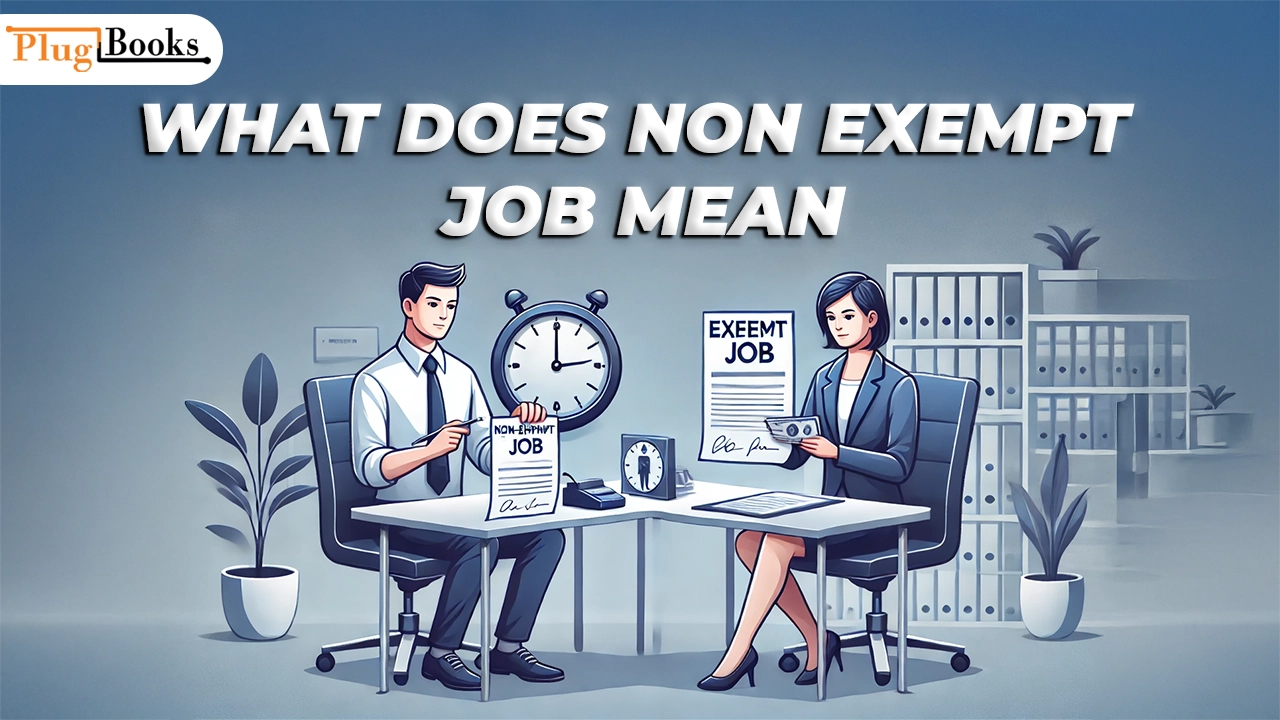If you’ve come across the term “non-exempt job” while job hunting or reviewing your employment contract, you might be wondering: what does non exempt job mean? Understanding this classification is essential for employees and employers alike, as it directly impacts wages, overtime pay, and workplace rights.
In this comprehensive guide, we’ll explore the definition, key characteristics, and implications of non-exempt jobs, along with practical tips for understanding your employment status.
What Does Non Exempt Job Mean? A Simple Explanation
A non-exempt job refers to a position that is covered under the Fair Labor Standards Act (FLSA). Employees in non-exempt roles are entitled to overtime pay for any hours worked over 40 in a workweek. This overtime pay is typically calculated at one and a half times their regular hourly rate. The “non-exempt” designation ensures workers are fairly compensated for extra time on the job.
This classification contrasts with “exempt” jobs, which are not entitled to overtime pay due to specific salary or job duty requirements. Non-exempt roles are common in various industries and are vital for ensuring fair labor practices.
Key Characteristics of Non-Exempt Jobs
Non-exempt jobs are defined by several important criteria:
- Eligibility for Overtime Pay
- Non-exempt employees must be paid overtime for hours exceeding 40 per week. This regulation protects workers from being overworked without fair compensation.
- Hourly vs. Salaried
- Non-exempt positions are often hourly, but salaried employees can also be non-exempt if they earn below a certain threshold set by the FLSA (currently $35,568 annually as of 2023).
- Job Duties
- The type of work performed can also influence exemption status. Roles involving manual labor, administrative support, or customer service often fall under the non-exempt category.
- State-Specific Rules
- Some states have stricter rules for determining non-exempt status. For example, California’s overtime regulations include daily overtime pay for hours worked beyond eight in a day.
Why Does It Matter if a Job Is Non-Exempt?
Understanding whether a job is non-exempt is crucial for employees and employers. Here’s why:
- Fair Compensation: Non-exempt classification ensures employees receive fair pay for extra work. If you work 50 hours in a week, you’re entitled to overtime pay for those additional 10 hours.
- Work-Life Balance: Employers are incentivized to manage schedules effectively to avoid excessive overtime costs, promoting better work-life balance for employees.
- Legal Compliance: Employers who misclassify employees as exempt risk facing significant legal and financial penalties. Accurate classification is essential to avoid violations of labor laws.
- Employee Rights: Non-exempt employees have protections under the FLSA, ensuring they are not exploited by being required to work long hours without appropriate compensation.
How to Determine If Your Job Is Non-Exempt
To find out if your job is non-exempt, review your employment agreement and consult with your HR department. Pay close attention to:
- Salary Threshold: Are you earning below the FLSA’s minimum threshold for exempt employees? If so, your position is likely non-exempt.
- Job Duties: Does your role primarily involve non-managerial, repetitive, or manual tasks? If yes, it’s likely non-exempt.
- Employment Terms: Examine whether your position explicitly states that it is non-exempt. Employers are required to clarify this classification.
If you’re still unsure, consulting a legal or HR professional can help clarify your employment status.
Common Non-Exempt Job Examples

Non-exempt jobs span various industries and roles, including:
- Retail and Hospitality: Retail associates, servers, bartenders, and hotel staff often fall under non-exempt classifications due to the nature of their work.
- Administrative Support: Roles such as administrative assistants, receptionists, and clerks are frequently non-exempt.
- Manual Labor: Positions such as warehouse workers, construction laborers, and factory operators are typically non-exempt.
- Customer Service: Call center agents, customer support representatives, and help desk technicians often qualify as non-exempt.
These examples highlight the diversity of roles that fall under the non-exempt category, emphasizing its significance across multiple sectors.
Benefits and Protections for Non-Exempt Employees
Non-exempt status comes with several benefits and protections:
- Guaranteed Overtime Pay
- Employees earn 1.5 times their regular rate for every hour worked over 40 in a week.
- Clear Work Boundaries
- Non-exempt employees are often discouraged from working beyond their scheduled hours unless authorized, protecting their personal time.
- Transparency in Pay
- Employers must track hours accurately, ensuring employees are paid for every minute worked.
- Legal Recourse
- If employers fail to comply with FLSA requirements, employees have the right to seek legal action or file complaints with the Department of Labor.
Internal Resources for Further Reading
Explore more about e-commerce business on PlugBooks. You might find these related posts helpful:
- The Best BI Tools for Your Business in 2025
- Simplify Work with Payroll Software for Accountants
- How to Prepare an Income Statement: A Step-by-Step Guide
How PlugBooks Helps E-commerce Sellers
PlugBooks simplifies bookkeeping for e-commerce sellers on Amazon and eBay by automating sales and COGS reporting, saving time and reducing errors while giving real-time business insights. It helps sellers make smarter decisions to grow their online stores effortlessly and stay on top of their finances with ease.
Conclusion
Understanding what a non-exempt job means empowers you to advocate for your rights and ensure fair compensation. In a non-exempt position, employees are entitled to protections like overtime pay, safeguarding both financial well-being and work-life balance.
Employers must stay informed to maintain compliance and promote a fair workplace. Being aware of non-exempt status allows both employees and employers to navigate employment classifications confidently, ensuring transparency and fairness across the board.




